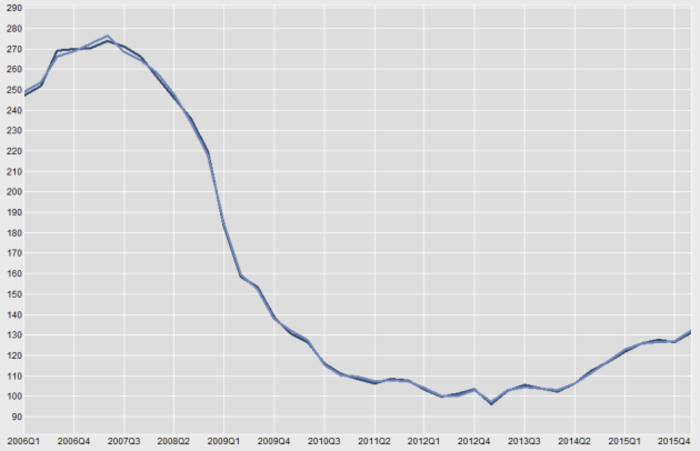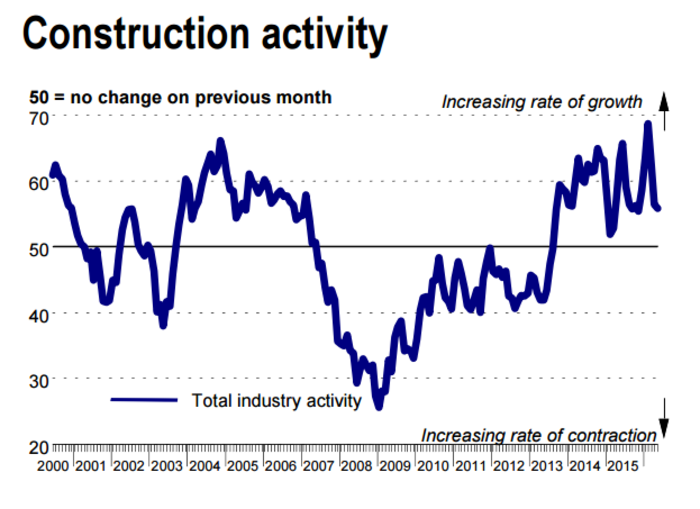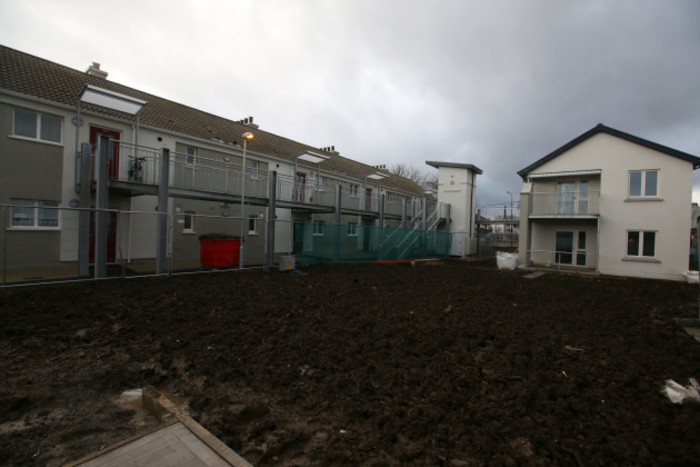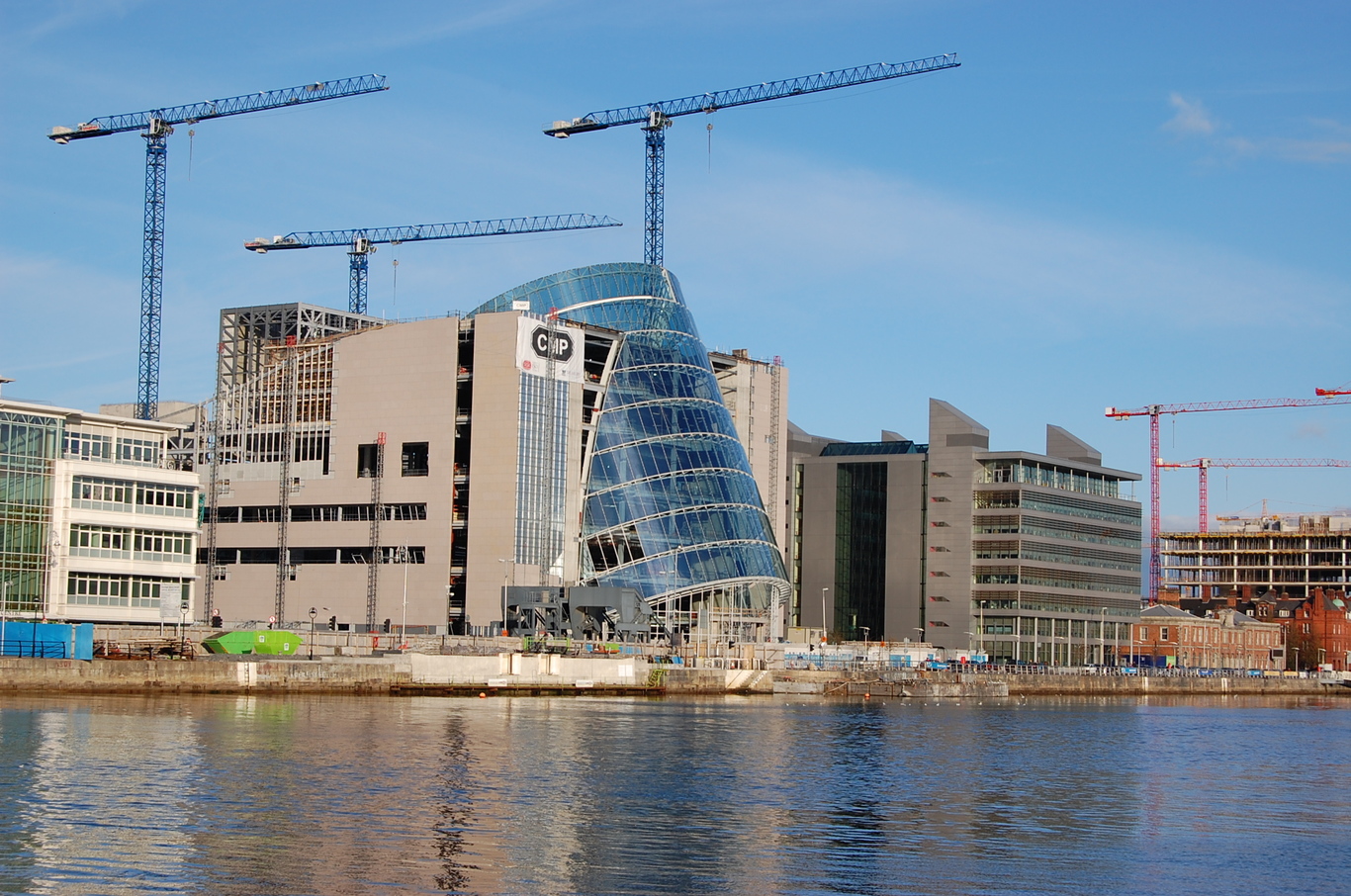There's a new problem holding the construction sector back - a lack of skilled staff
Builders say they can’t get the people they need as activity in the sector continues to pick up.
AS THE INDUSTRY continues to bounce back from its collapse when the property bubble burst, builders are facing the new problem of finding the staff they need to get projects off the ground.
An annual PwC construction study, which polled 60 builders and developers across the country, found almost two-thirds of construction firms were having problems recruiting people with the correct skills.
The figure was a sharp increase on last year’s poll, when less than half said they were finding it hard to source staff.
Of those that were finding it difficult to locate the right employees, more than half said they were looking for individuals with managerial experience – while subcontractors and planning experts were also in high demand.
More than 130,000 people were employed in the construction sector in the first quarter of the year, according to CSO figures, up from a low of around 96,000 in early 2013.
However, the current tally is less than half the more than 270,000 working in construction when the country was still in the grips of property mania in mid-2007.
 Construction employment (000s)
Construction employment (000s)
Skills gap
PwC real estate partner Ronan MacNioclais said while some challenges for the construction sector were easing up, a skills gap was among the issues holding the industry back.
The availability of finance and, for export businesses, uncertainty about the upcoming British vote on EU membership was also weighing on builders.
Existing constraints look set to worsen as new orders continue to rise sharply – although the rate of growth has been pared back.
An Ulster Bank construction PMI released today, which serves as one of the key leading indicators for the sector, pointed to a continued pickup in residential, commercial and civil projects.

The PwC study comes about a month after a separate report from from the skills and labour market research unit in Solas found there had been a near-50% increase in demand for construction workers since 2014.
While the overall employment figures were still well off the boom-time peak, the building industry had the fastest rate of jobs growth of any sector between mid-2014 and the same time last year.
Housing shortage
The PwC study also highlighted the current housing shortage, pointing to an estimate from the ESRI that about 25,000 houses need to be built per year to meet demand. Last year about half that amount were built.
The most popular solution to the problem, cited by nearly half of respondents, was the creation of a state housing bank to finance home-building.
MacNioclais said that the lack of accommodation “is beginning to impact key talent coming to Ireland and will impact FDI investment if not tackled in a reasonable time frame”.
“With an estimated 25,000 housing units required per annum, the survey finds that the creation of a new state housing bank is the most preferred option to provide housing finance and affordable mortgages,” he said.

Optimistic
Overall, the PwC study found that about nine out of ten of Ireland’s builders are optimistic about the coming year, although this is down from 95% in 2015.
Just 2% of respondents plan to cut staff in the coming year, while over two-thirds expect to hire. Half of those polled plan to swell their ranks by 10% over the next 12 months.
For funding, over one-third of developers said that they would seek non-bank finance, although this was down from 45% in 2015. Among those businesses that do decide to go the non-bank route, private equity is the most popular source of cash.






